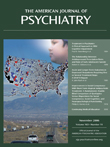Dr. O’Brien Replies
To the Editor: We thank the authors of the letters published here as well as the authors of the many more that were sent to us directly. Most of the letters that we received directly were heartfelt expressions of gratitude from clinicians, including nurses who care for chronic pain patients in hospices or who treat chronic pain with opiates and opioids. Along similar lines and in agreement with the letter by Dr. Miller, there have also been supportive letters from organizations of physicians who treat pain (American Pain Society, American Academy of Pain Medicine) and from the American Society of Addiction Medicine.
We have read carefully the only two dissenting letters that we have seen. Drs. Erickson and Wilcox seem to agree with our statement of the problem but find the word “addiction” to be distasteful. They are entitled to that position, but they should also feel the responsibility to come up with a better alternative. “Chemical dependence” would retain the same problems as the current version. We do find it a bit odd, however, that the title of Dr. Erickson’s own office contains the term “addiction science.” The word is also used without apparent prejudice as the name of one of the most venerable journals in the field as well as in the names of scientific societies and in the name of an official subspecialty of psychiatry.
Drs. Streltzer, Sullivan, and Johnson focus on the issues involved in long-term prescription of opioids. This is a controversial subject and was not addressed in our editorial. The reality is that many patients do receive opioids from their physicians, and both tolerance and “physical” dependence occur to some degree very rapidly. This normal response must be distinguished from compulsive drug-seeking behavior commonly known as “addiction.”
Quite frankly, the current classification is an unintentional violation of the Hippocratic Oath: “First, do no harm.” We have created a situation with our terminology that not only confuses physicians, but also results in needless suffering and mislabeling of patients.



